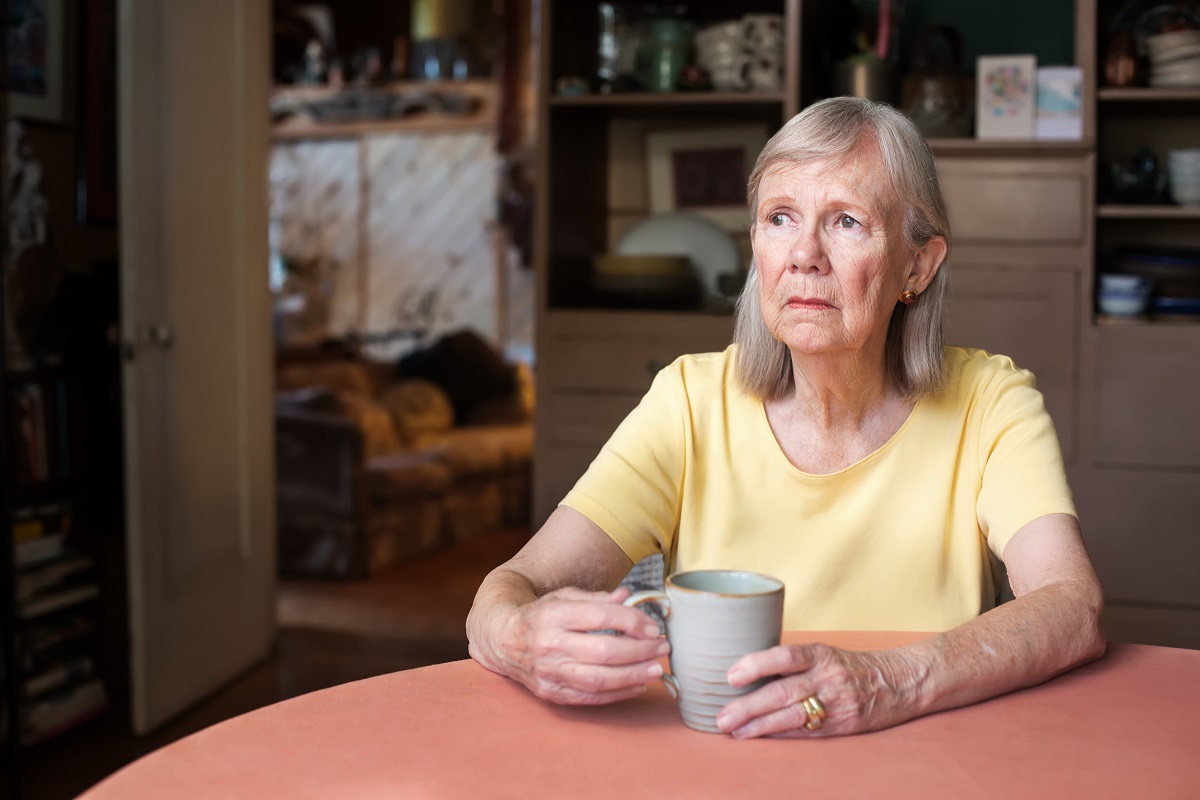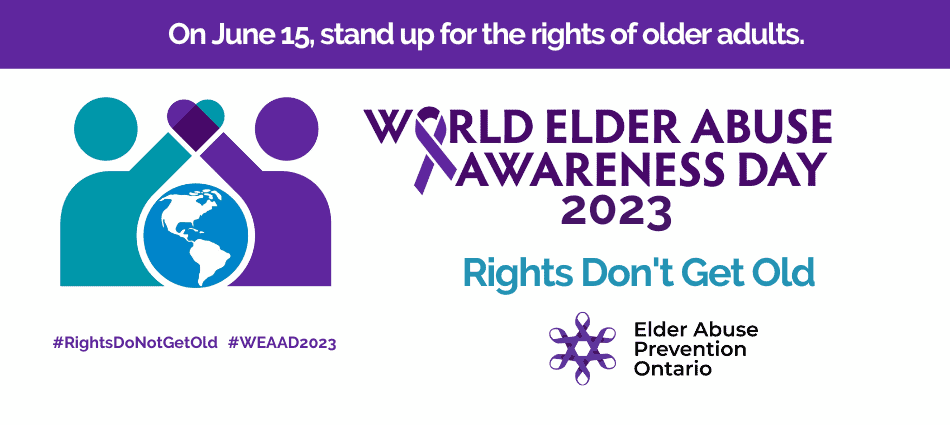by Peggy Edwards, Council on Aging of Ottawa
Elder Abuse is defined by the World Health Organization as “a single or repeated act or lack of appropriate action occurring within any relationship where there is an expectation of trust, which causes harm or distress to an older person.”

Elder abuse is recognized internationally as five basic types of maltreatment of older adults: financial, psychological, sexual, physical and neglect. Elder Abuse Prevention Ontario identifies a sixth kind of elder abuse called systemic or institutional abuse, which refers to rules, regulations, policies or practices that harm or discriminate against older adults. Examples include using physical restraints as an easy way to prevent falls; or diapering a person instead of helping them to the washroom. We witnessed the worst of institutional abuse during the height of the pandemic. When the army was called in to deal with the dire situation in some long-term care (LTC) homes in Ontario and Quebec, medical personnel found older people mired in excrement and bed sores and experiencing malnutrition. This was an appalling example of system neglect largely brought about by short staffing, a problem in many LTC facilities before the pandemic.
Elder abuse is a serious injustice and a violation of human rights. Elder abuse or maltreatment can harm an older person’s physical and mental health, damage relationships, increase social isolation, cause devastating financial loss, early death and more. Abuse in any form can leave the abused person feeling isolated, fearful and depressed.
Elder abuse is often called the “hidden crime.” The magnitude of elder abuse is not fully known, due to the large number of underreported cases. However, studies indicate that between eight and 10 per cent of older adults experience some form of abuse. This translates to over 200,000 older adults in Ontario alone.
John Johnson is a retired lawyer, co-author of a best-selling book on elder abuse and past president of the Council on Aging of Ottawa (COA).
“Ninety per cent of the elder abuse I encountered involved family members—often financial abuse as well as other forms of intimidation and maltreatment. A common situation involved an adult child or brother who moves in with his older mother or sister and proceeds to steal her dignity and her money. The victims are often ashamed and afraid to report the abuse in case the family member will be arrested or increase abusive behaviours. Other family members are reluctant to accept and admit that their sibling, a grandchild or another family member is an abuser.”
John was able to intervene in the cases that came his way. “The process required four steps: conversations that allowed the victim to tell her story and agree to be part of an intervention, helping the victim access help, removing the abuser, and following up in the legal system if required.”
There are several programs in the Ottawa region that can help. One is the Elder Abuse Response and Referral Service (EARRS), housed by the Nepean Rideau and Osgoode Community Resource Centre. EARRS offers referrals, intake, consultation and direct support.
“We work collaboratively with older adults, families and service providers to help seniors regain some control in their lives,” says Brad Spooner who works with EARRS. “Typically, we deal with some 120 clients per year. Most of our clients are in complex situations involving other issues such as declining health and the misuse of power and control by people close to them. They are referred to the case manager who gets the information and trust needed to help the victim.”
At the time of writing, EARRS had just been informed its funding had been substantially reduced. “This is a real concern,” says Brad. “We need more services like EARRS that are integrated in the community and provide direct help.”
What to Do
“We are all responsible for preventing and addressing elder abuse,” says John.
If you suspect or encounter elder abuse, here are some contacts to help:
- EARRS: Call 613 596-5626, ext. 230 or visit www.nrocrc.org.
- Ottawa Police: The Elder Abuse section is staffed by specialized officers who investigate all allegations of elder abuse. The Partner Assault unit investigates cases of domestic violence. They also work with the Ottawa Police Victim Support unit, which provides information, crisis counselling and resources to vulnerable persons and victims of elder abuse. If a senior or vulnerable person is in immediate danger, call 911. To speak with someone in the Elder Abuse section or file a report about elder abuse, call the Police Reporting Unit at 613 236-1222, extension 7300. It has access to multiple language services 24/7.
- If anonymity is a concern, call Crime Stoppers at 1 800-222-TIPS (8477).
- If you see or suspect abuse in a long-term care home or retirement home, you must report it. Long-Term Care ACTION Line 1 866-434-0144, www.health.gov.on.ca. Retirement Homes Regulatory Authority 1 855-275-7472, www.rhra.ca.
- Seniors Safety Line 1 866-299-1011. A safe, confidential place for older adults and those who care about them to talk with someone about situations where they feel they are being mistreated or to receive information about elder abuse services in their local areas.
Let’s recognize it, speak out and stop elder abuse in our community. June 15 is World Elder Abuse Awareness Day (WEAAD). Visit https://eapon.ca/weaad/ for tools and messages.
References/To Learn More
- Elder Abuse: You Have a Role to Play (2021) by John Johnson and Sabby Duthie. Available at Amazon, Indigo and public libraries.
- . Elder Abuse Prevention Ontario: resources/webinars, fact sheets and more information about the various forms of elder abuse/maltreatment at www.eapon.ca, 416-916-6728.


|
The COA is a bilingual, inclusive, voluntary organization that works to advance the wellbeing of older adults in the Ottawa region. The COA is committed to helping prioritize and integrate elder abuse prevention and response strategies into the planning and implementation of an Age-Friendly Community. For information on membership, volunteer opportunities, events and learning programs, visit: www.coaottawa.ca or call 613-789-3577.
ADVANCING THE WELLBEING OF OLDER ADULTS |






